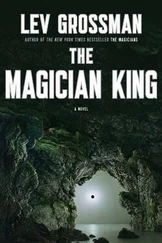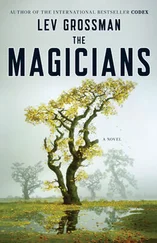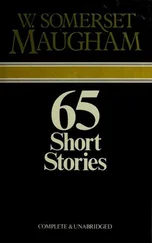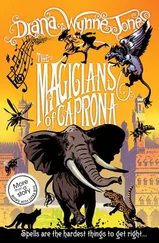Somerset Maugham - The Magician
Здесь есть возможность читать онлайн «Somerset Maugham - The Magician» весь текст электронной книги совершенно бесплатно (целиком полную версию без сокращений). В некоторых случаях можно слушать аудио, скачать через торрент в формате fb2 и присутствует краткое содержание. Жанр: Классическая проза, на английском языке. Описание произведения, (предисловие) а так же отзывы посетителей доступны на портале библиотеки ЛибКат.
- Название:The Magician
- Автор:
- Жанр:
- Год:неизвестен
- ISBN:нет данных
- Рейтинг книги:3 / 5. Голосов: 1
-
Избранное:Добавить в избранное
- Отзывы:
-
Ваша оценка:
- 60
- 1
- 2
- 3
- 4
- 5
The Magician: краткое содержание, описание и аннотация
Предлагаем к чтению аннотацию, описание, краткое содержание или предисловие (зависит от того, что написал сам автор книги «The Magician»). Если вы не нашли необходимую информацию о книге — напишите в комментариях, мы постараемся отыскать её.
The Magician — читать онлайн бесплатно полную книгу (весь текст) целиком
Ниже представлен текст книги, разбитый по страницам. Система сохранения места последней прочитанной страницы, позволяет с удобством читать онлайн бесплатно книгу «The Magician», без необходимости каждый раз заново искать на чём Вы остановились. Поставьте закладку, и сможете в любой момент перейти на страницу, на которой закончили чтение.
Интервал:
Закладка:
A FRAGMENT OF AUTOBIOGRAPHY
In 1897, after spending five years at St Thomas's Hospital I passed the examinations which enabled me to practise medicine. While still a medical student I had published a novel called _Liza of Lambeth_ which caused a mild sensation, and on the strength of that I rashly decided to abandon doctoring and earn my living as a writer; so, as soon as I was 'qualified', I set out for Spain and spent the best part of a year in Seville. I amused myself hugely and wrote a bad novel. Then I returned to London and, with a friend of my own age, took and furnished a small flat near Victoria Station. A maid of all work cooked for us and kept the flat neat and tidy. My friend was at the Bar, and so I had the day (and the flat) to myself and my work. During the next six years I wrote several novels and a number of plays. Only one of these novels had any success, but even that failed to make the stir that my first one had made. I could get no manager to take my plays. At last, in desperation, I sent one, which I called _A Man of Honour_, to the Stage Society, which gave two performances, one on Sunday night, another on Monday afternoon, of plays which, unsuitable for the commercial theatre, were considered of sufficient merit to please an intellectual audience. As every one knows, it was the Stage Society that produced the early plays of Bernard Shaw. The committee accepted _A Man of Honour_, and W.L. Courtney, who was a member of it, thought well enough of my crude play to publish it in _The Fortnightly Review_, of which he was then editor. It was a feather in my cap.
Though these efforts of mine brought me very little money, they attracted not a little attention, and I made friends. I was looked upon as a promising young writer and, I think I may say it without vanity, was accepted as a member of the intelligentsia, an honourable condition which, some years later, when I became a popular writer of light comedies, I lost; and have never since regained. I was invited to literary parties and to parties given by women of rank and fashion who thought it behoved them to patronise the arts. An unattached and fairly presentable young man is always in demand. I lunched out and dined out. Since I could not afford to take cabs, when I dined out, in tails and a white tie, as was then the custom, I went and came back by bus. I was asked to spend week-ends in the country. They were something of a trial on account of the tips you had to give to the butler and to the footman who brought you your morning tea. He unpacked your gladstone bag, and you were uneasily aware that your well-worn pyjamas and modest toilet articles had made an unfavourable impression upon him. For all that, I found life pleasant and I enjoyed myself. There seemed no reason why I should not go on indefinitely in the same way, bringing out a novel once a year (which seldom earned more than the small advance the publisher had given me but which was on the whole respectably reviewed), going to more and more parties, making more and more friends. It was all very nice, but I couldn't see that it was leading me anywhere. I was thirty. I was in a rut. I felt I must get out of it. It did not take me long to make up my mind. I told the friend with whom I shared the flat that I wanted to be rid of it and go abroad. He could not keep it by himself, but we luckily found a middle-aged gentleman who wished to install his mistress in it, and was prepared to take it off our hands. We sold the furniture for what it could fetch, and within a month I was on my way to Paris. I took a room in a cheap hotel on the Left Bank.
A few months before this, I had been fortunate enough to make friends with a young painter who had a studio in the Rue Campagne Premiиre. His name was Gerald Kelly. He had had an upbringing unusual for a painter, for he had been to Eton and to Cambridge. He was highly talented, abundantly loquacious, and immensely enthusiastic. It was he who first made me acquainted with the Impressionists, whose pictures had recently been accepted by the Luxembourg. To my shame, I must admit that I could not make head or tail of them. Without much searching, I found an apartment on the fifth floor of a house near the Lion de Belfort. It had two rooms and a kitchen, and cost seven hundred francs a year, which was then twenty-eight pounds. I bought, second-hand, such furniture and household utensils as were essential, and the _concierge_ told me of a woman who would come in for half a day and make my _cafй au lait_ in the morning and my luncheon at noon. I settled down and set to work on still another novel. Soon after my arrival, Gerald Kelly took me to a restaurant called Le Chat Blanc in the Rue d'Odessa, near the Gare Montparnasse, where a number of artists were in the habit of dining; and from then on I dined there every night. I have described the place elsewhere, and in some detail in the novel to which these pages are meant to serve as a preface, so that I need not here say more about it. As a rule, the same people came in every night, but now and then others came, perhaps only once, perhaps two or three times. We were apt to look upon them as interlopers, and I don't think we made them particularly welcome. It was thus that I first met Arnold Bennett and Clive Bell. One of these casual visitors was Aleister Crowley. He was spending the winter in Paris. I took an immediate dislike to him, but he interested and amused me. He was a great talker and he talked uncommonly well. In early youth, I was told, he was extremely handsome, but when I knew him he had put on weight, and his hair was thinning. He had fine eyes and a way, whether natural or acquired I do not know, of so focusing them that, when he looked at you, he seemed to look behind you. He was a fake, but not entirely a fake. At Cambridge he had won his chess blue and was esteemed the best whist player of his time. He was a liar and unbecomingly boastful, but the odd thing was that he had actually done some of the things he boasted of. As a mountaineer, he had made an ascent of K2 in the Hindu Kush, the second highest mountain in India, and he made it without the elaborate equipment, the cylinders of oxygen and so forth, which render the endeavours of the mountaineers of the present day more likely to succeed. He did not reach the top, but got nearer to it than anyone had done before.
Crowley was a voluminous writer of verse, which he published sumptuously at his own expense. He had a gift for rhyming, and his verse is not entirely without merit. He had been greatly influenced by Swinburne and Robert Browning. He was grossly, but not unintelligently, imitative. As you flip through the pages you may well read a stanza which, if you came across it in a volume of Swinburne's, you would accept without question as the work of the master. '_It's rather hard, isn't it, Sir, to make sense of it?_' If you were shown this line and asked what poet had written it, I think you would be inclined to say, Robert Browning. You would be wrong. It was written by Aleister Crowley.
At the time I knew him he was dabbling in Satanism, magic and the occult. There was just then something of a vogue in Paris for that sort of thing, occasioned, I surmise, by the interest that was still taken in a book of Huysmans's, _Lа Bas_. Crowley told fantastic stories of his experiences, but it was hard to say whether he was telling the truth or merely pulling your leg. During that winter I saw him several times, but never after I left Paris to return to London. Once, long afterwards, I received a telegram from him which ran as follows: 'Please send twenty-five pounds at once. Mother of God and I starving. Aleister Crowley.' I did not do so, and he lived on for many disgraceful years.
I was glad to get back to London. My old friend had by then rooms in Pall Mall, and I was able to take a bedroom in the same building and use his sitting-room to work in.
Читать дальшеИнтервал:
Закладка:
Похожие книги на «The Magician»
Представляем Вашему вниманию похожие книги на «The Magician» списком для выбора. Мы отобрали схожую по названию и смыслу литературу в надежде предоставить читателям больше вариантов отыскать новые, интересные, ещё непрочитанные произведения.
Обсуждение, отзывы о книге «The Magician» и просто собственные мнения читателей. Оставьте ваши комментарии, напишите, что Вы думаете о произведении, его смысле или главных героях. Укажите что конкретно понравилось, а что нет, и почему Вы так считаете.









